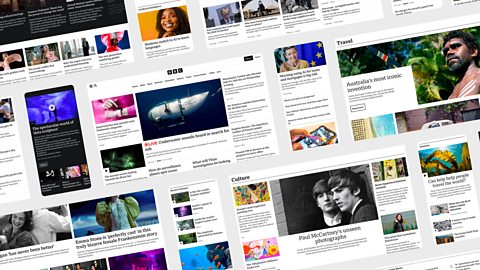Unknown Facts About News Websites
Unknown Facts About News Websites
Blog Article
The Ultimate Guide To News Websites
Table of ContentsSome Known Incorrect Statements About News Websites The Greatest Guide To News WebsitesNews Websites - An OverviewNot known Facts About News WebsitesGet This Report about News Websites
It was down in the UK and Brazil but up some other nations, such as Greece, Bulgaria, and Poland (News Websites). This year, for the very first time, we inquired about the various manner ins which people stay clear of the information and located that around half of avoiders (53%) were trying to do so in a broad-brush or periodic means as an example, by transforming off the radio when the information came on, or by scrolling past the information in social mediae.g. scrolling previous news, changing networks when news begins. of avoiders inspect sources less usually. e.g. limit to particular times of day, turning off notifications, etc. of avoiders prevent some topics. e.g. subjects that bring down state of mind or boost anxiety. You stated that you try to proactively avoid news.

I'm most likely selecting to review even more light-hearted stories than I used to currently. M, 51, UK Switching my back on news is the only method I feel I can deal occasionally. I need to consciously make the effort to turn away for the sake of my own mental health and wellness.
Our News Websites Ideas
Careful avoidance of Ukraine news was highest in most of the nations closest to the dispute, strengthening findings from our added study last year, not long after the battle had actually begun. Our data might not suggest a lack of interest in Ukraine from nearby nations however rather a need to handle time or shield psychological wellness from the extremely real scaries of war.
Contrasting Finland with a politically polarised nation such as the United States (see following graph) that is less impacted by the war, we locate a really different pattern of topic avoidance. In the United States, we find that consumers are most likely to stay clear of subjects such as nationwide politics and social justice, where disputes over issues such as gender, sexuality, and race have actually become very politicised.
American politics are quite toxic nowadays. I find occasionally that I have to detach from tales that just make me mad. F, 61, United States For read more some people, bitter and disruptive political arguments are a factor to transform off news completely, but also for some political partisans, evasion is commonly about obstructing out perspectives you don't wish to listen to.

6 Easy Facts About News Websites Explained
Some are wanting to make news more obtainable for hard-to-reach teams, widening the information agenda, commissioning more inspiring or positive information, or welcoming positive or options journalism that give people a feeling of hope or individual firm. In our study this year, we asked respondents concerning their passion in these various methods.
This explains why tales like Ukraine or national politics do well with news regulars yet can at the same time transform less interested individuals away (News Websites). Selective avoiders are much less interested in all kinds of news than non-avoiders yet in relative terms they do appear to be more curious about favorable or solutions-based information

The Definitive Guide to News Websites
2023). This may see here hold true in the minute, yet with time it appears to be leaving lots of people vacant and much less completely satisfied, which might be weakening our link with and count on the news. Throughout markets, general rely on news (40%) and count on the sources individuals utilize themselves (46%) are down by a better 2 percent points this year.
Via the rear-view mirror, the COVID-19 trust fund bump is clearly noticeable in the complying with chart, though the instructions of traveling afterwards has been blended. Sometimes (e.g. Finland), the count on boost has actually been maintained, while in others the upturn looks even more like a spot in a tale of ongoing lasting decline.
Several of the highest reported levels of media objection are located in nations with highest degree of distrust, such as Greece, the Philippines, the United States, France, and the United Kingdom. The most affordable levels of media criticism are commonly in those with greater degrees of trust, such as Finland, Norway, Denmark, and Japan.
News Websites for Beginners
This year we asked participants concerning their choices for text, audio and video clip when taking in news online. Usually, we locate that the majority still prefer to review the information (57%), instead of watch (30%) or listen to it (13%), but more youthful individuals (under-35s) are much more likely to pay attention (17%) than older groups.
Behind the standards we find substantial and unusual country differences. In markets with a solid reading tradition, such as Finland and the UK, around eight in 10 still like to check out online information, however in India and Thailand, around four in 10 (40%) state they prefer to view news online, and in the Philippines that percentage is over half (52%).
Report this page